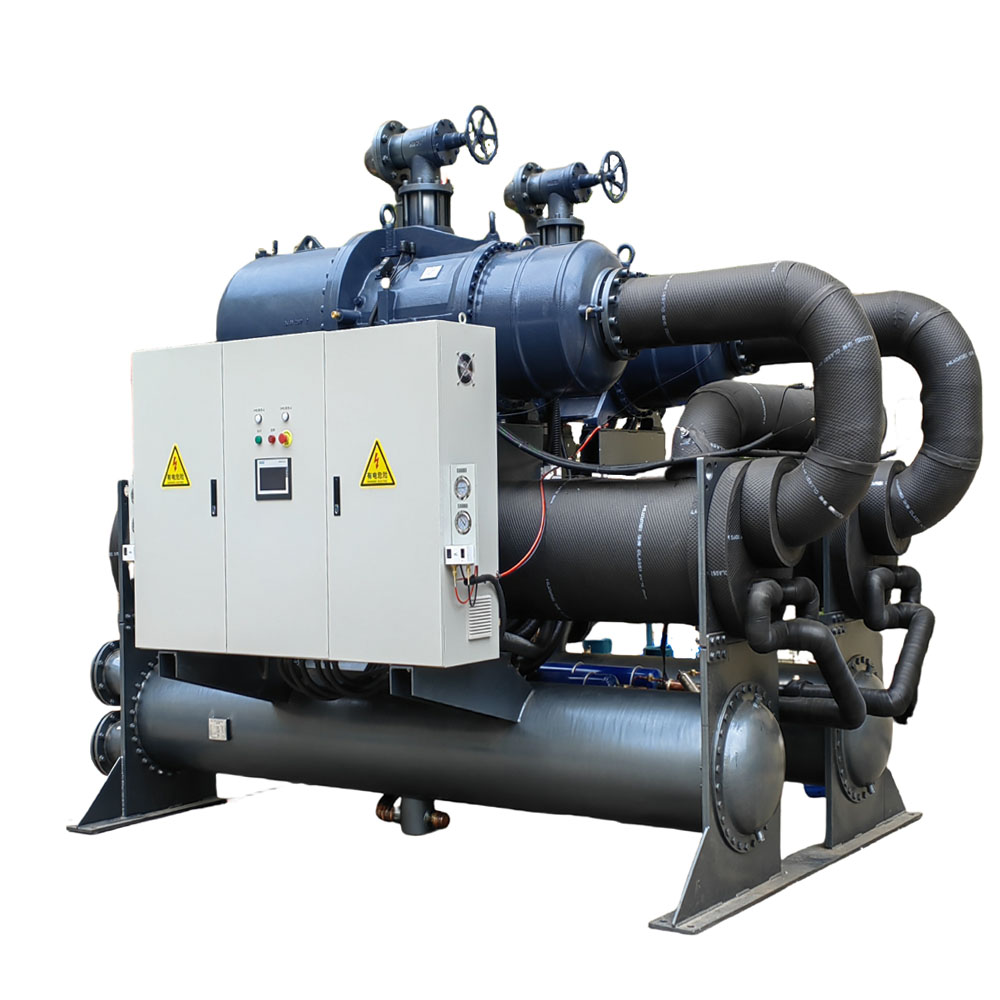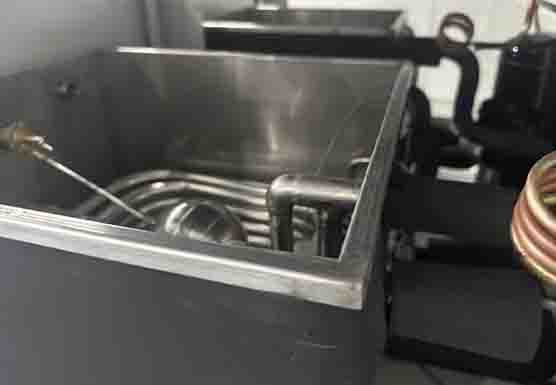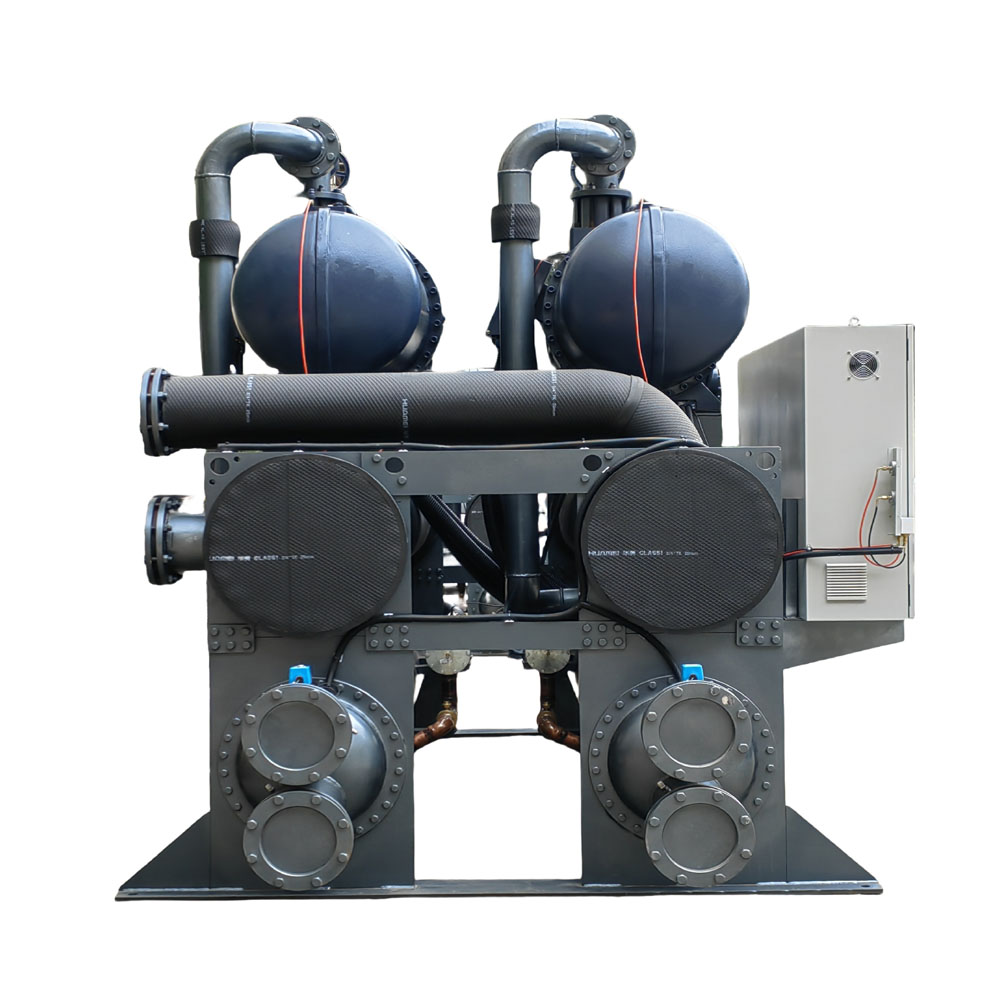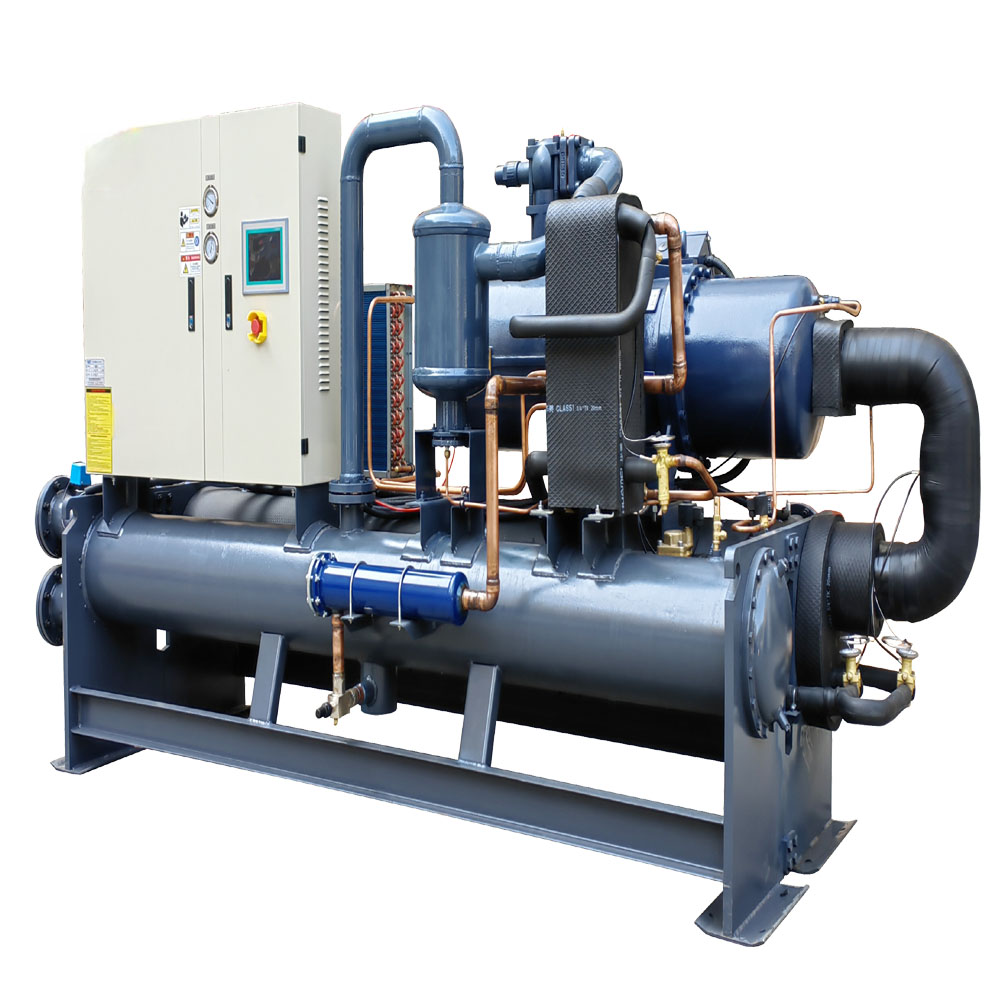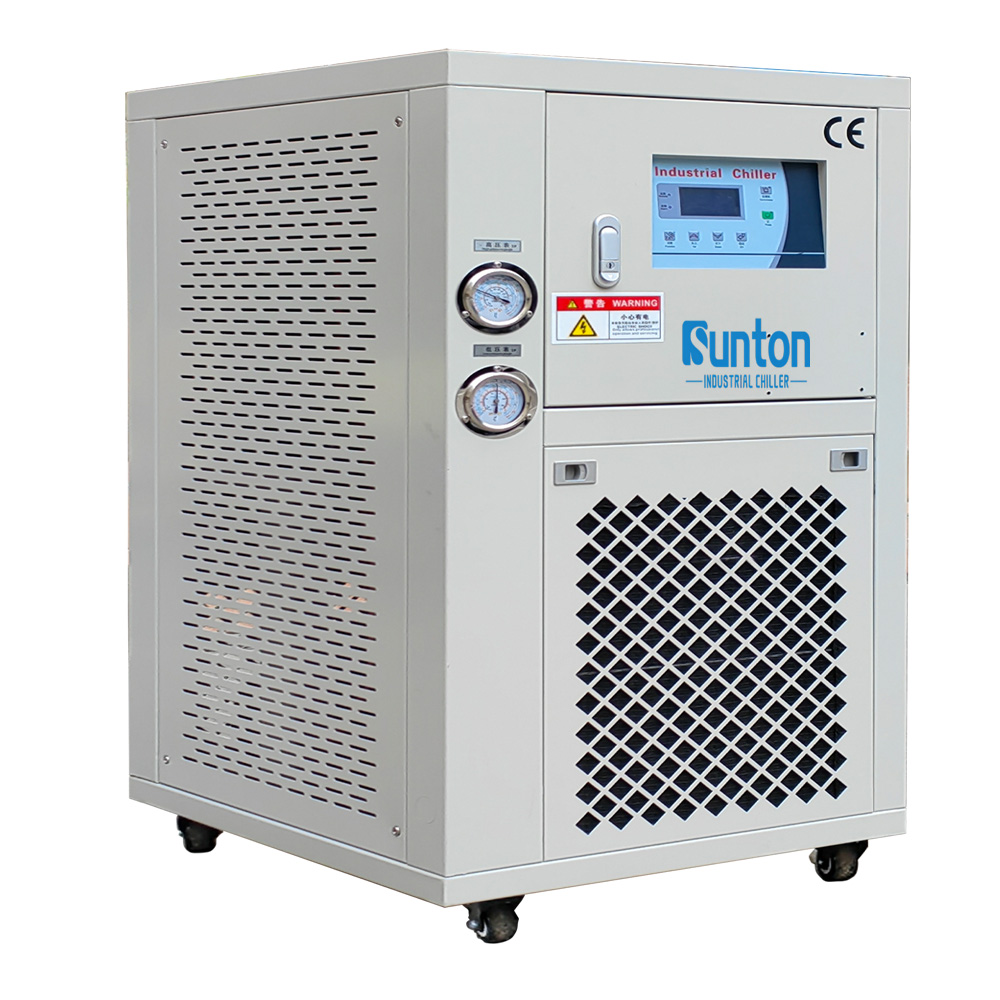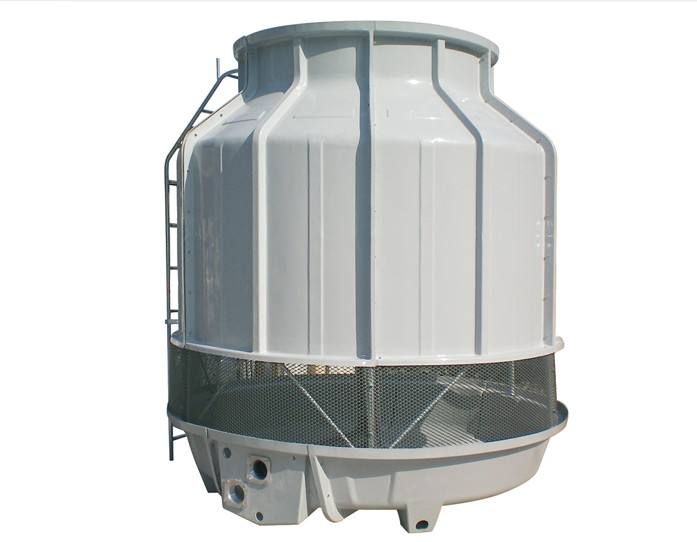-
Dalingshan Industrial Guangdong
Understanding How Industrial and Commercial Chillers Work: A Guide
Discover the Working Principles of Industrial Chillers for Plastic Processing
In the HVAC sector, chillers play a critical role in maintaining comfortable environments. rapidly evolving world of plastic processing, maintaining optimal temperature conditions is pivotal for quality and efficiency. Industrial chillers are designed to produce chilled water for various applications, including process cooling. are essential components in this process, providing precise cooling solutions that enhance production quality and save energy. This detailed guide explores the workings of industrial chillers, focusing on how these systems can revolutionize your manufacturing processes.
Inhoudsopgave
What is a Chiller and How Does it Work?
A chiller is a sophisticated piece of equipment designed to cool liquids through a vapor-compression or absorption process. It plays a crucial role in various industrial applications, ensuring that heat is efficiently managed.
Core Functions
- Heat Removal: Using refrigerant, chillers extract heat from process water, which is then circulated through a cooling tower.
- Temperature Regulation: Chillers provide consistent temperature control, essential for maintaining product quality and preventing overheating.
Chillers are indispensable for efficient operations in the HVAC industry. plastic processing industry, significantly boosting productivity and precision.
Why Are Industrial Chillers Crucial for Plastic Processing?
In the plastic processing sector, precise temperature management is vital for achieving high-quality outputs. Industriële koelmachines provide the cooling necessary to keep machinery operating efficiently.
Importance in Plastic Processing
- Process Cooling: Critical for cooling molds and machinery, preventing product defects.
- Energy Savings: Reduces energy consumption by employing efficient cooling systems, thereby cutting operational costs.
- Enhanced Productivity: By ensuring fast cycle times and reduced downtime, chillers contribute to increased production efficacy.
Industrial chillers are the backbone of a reliable and efficient plastic production operation.
Understanding the Different Types of Chillers
Selecting the appropriate type of chiller is vital for meeting your specific cooling needs.
Types of Chillers
- Luchtgekoelde chillers: Ideal for small to medium applications; they use ambient air to dissipate heat.
- Watergekoelde koelers: Suitable for larger applications where water can efficiently absorb heat.
- Centrifugal Chillers: Perfect for large-scale industrial processes requiring high cooling capacity.
Identifying the correct chiller is vital for ensuring optimal performance and cost savings.
What is the Working Principle of a Chiller System?
Understanding the working principle Understanding the chiller work of chillers involves knowing how each component functions together to cool your processes.
Operational Mechanics
- Refrigerant Cycle: A compressor circulates refrigerant, increasing its pressure and directing it to the condenser, where it cools and releases heat.
- Evaporator Function: The cooled refrigerant absorbs heat from the process water in the evaporator, lowering water temperature.
- Expansieventiel: Regulates the flow of refrigerant into the evaporator to maintain efficient heat exchange.
This cycle provides consistent and reliable koeling needed for rigorous industrial applications.
How Does a Cooling Tower Enhance Chiller Efficiency?
A cooling tower is an integral part of many chiller setups, providing additional cooling and enhancing efficiency.
Functionality and Benefits
- Heat Dissipation: Utilizes ambient air Heat exchangers are used to dissipate excess heat from the water, lowering water temperature for reuse in the chiller cycle.
- Water Management is crucial for maintaining optimal chilled water temperatures in industrial chillers.: Regulates the water flow necessary for the cooling process, maintaining balance within the system.
Incorporating a cooling tower aids in maintaining an efficient cooling system, essential for continuous industrial operations.
Exploring Components of a Chiller System
An effective chiller system relies on several vital components working harmoniously.
Key Components
- Compressor: Increases refrigerant pressure, playing a crucial role in the refrigeration cycle.
- Condensator: Cools and condenses refrigerant, releasing heat absorbed from the evaporator.
- Verdamper: Absorbs heat from the process water, effectively lowering its temperature for the next cycle.
- Expansieventiel: Controls refrigerant flow into the evaporator, optimizing the cooling process.
Understanding these components aids in realizing the full potential of industrial chillers.
Air-Cooled vs Water-Cooled Chillers: Key Differences
Kiezen tussen luchtgekoeld en watergekoelde koelmachines depends on specific operational needs and constraints.
Comparative Analysis
- Installation and Maintenance: Air-cooled chillers are a type of cooling equipment commonly used in commercial settings. are easier to install, requiring minimal infrastructure compared to watergekoelde koelmachines.
- Efficiency and Performance: Water-cooled chillers use water to remove heat and tend to be more energy-efficient in larger applications.
- Environmental Considerations: Air-cooled chillers are favored in regions lacking water resources, using ambient air to cool the refrigerant.
Determining the right type of commercial chiller depends on your resource availability and cooling requirements.
Selecting the Right Chiller for Your Needs
Ensuring your operations have the right chiller involves careful consideration of several factors.
Belangrijke overwegingen
- Koelvermogen: Align chiller capacity with your specific cooling demands to avoid over-sizing or Under-sizing can lead to inefficient chiller work and increased operational costs. your equipment.
- Energie-efficiëntie: Consider systems with energy-efficient technologies to reduce long-term operational costs.
- Environmental Impact: Assess the environmental impact of your chiller selection to enhance sustainability efforts.
Making the Right Choice
Leveraging these factors allows you to choose systems that balance performance, cost, and efficiency.
FAQs on Industrial Chillers for Plastic Processing
How do chillers enhance plastic processing productivity?
Chillers optimize temperature control, ensuring plastic injection or CNC machinery operates efficiently and reducing product defect rates.
What is the main difference between air-cooled and water-cooled chillers?
Air-cooled chillers use air to remove heat, whereas water-cooled chillers use water, cooling tower which is generally more efficient for large applications.
Why are chillers important in industrial applications?
Chillers control equipment temperatures, preventing overheating and ensuring consistent product quality in HVAC systems.
Is a cooling tower necessary for all chiller systems?
A cooling tower enhances efficiency particularly in systems that require chilled water for cooling processes. watergekoelde koelmachines .Low-pressure chillers may be beneficial in certain applications, but might not be necessary for all setups depending on design and application.
Conclusion: Elevate Your Plastic Processing with Efficient Chillers
Industrial chillers stand as vital enablers of efficiency and precision in plastic processing. By providing consistent and reliable cooling, these systems enhance production quality and operational efficiency. To explore the best chiller solutions for your needs, contact us today.
Belangrijkste opmerkingen
- To optimize performance, it is essential to understand your system’s chiller work and cooling equipment.: Know the types and components that best fit your cooling processes.
- Consider Efficiency: Prioritize energy-efficient solutions to lower costs and improve sustainability.
- Leverage Expert Guidance: For personalized solutions, engaging specialists can optimize your system’s benefits.
For more comprehensive insights, delve into specialized cooling solutions at Glycol Chillers or explore the advanced Water Cooled Screw Water Chiller.
